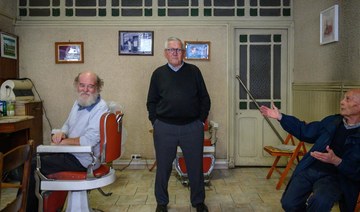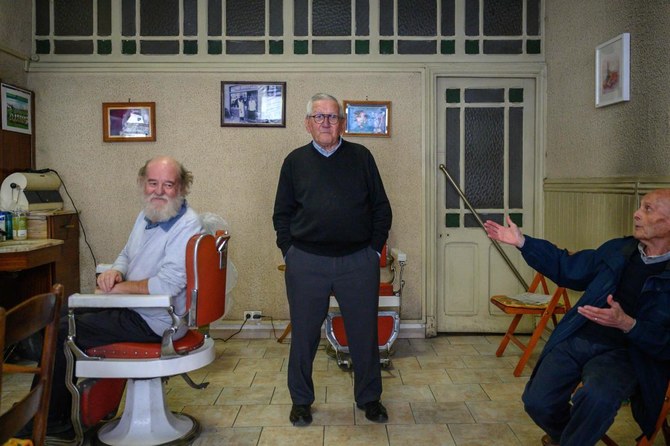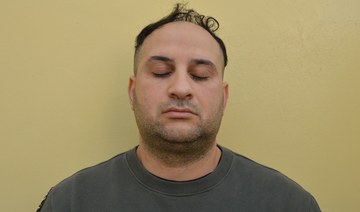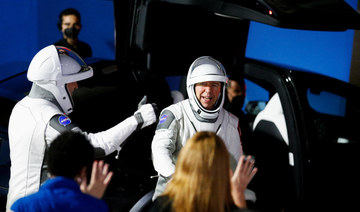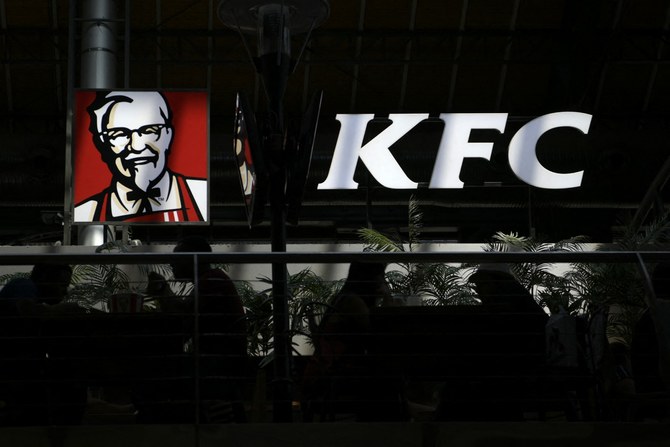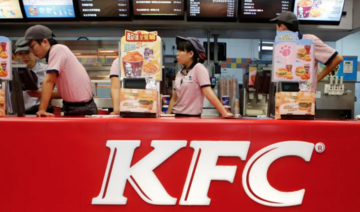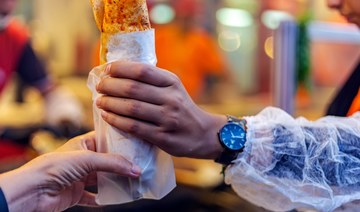LONDON: Michael Gambon, the Irish-born actor knighted for his illustrious career on the stage and screen and who went on to gain admiration from a new generation of moviegoers with his portrayal of Hogwarts headmaster Albus Dumbledore in six of the eight “Harry Potter” films, has died. He was 82.
The actor died on Wednesday following “a bout of pneumonia,” his publicist, Clair Dobbs, said Thursday.
“We are devastated to announce the loss of Sir Michael Gambon. Beloved husband and father, Michael died peacefully in hospital with his wife Anne and son Fergus at his bedside,” his family said in a statement.
While the Potter role raised Gambon’s international profile and found him a huge audience, he had long been celebrated as one of Britain’s leading actors. His work spanned TV, theater, film and radio, and over the decades he starred in dozens of movies from “Gosford Park” and “The King’s Speech” to the animated family film “Paddington.” He recently appeared in the Judy Garland biopic “Judy,” released in 2019.
Gambon was knighted for his contribution to the entertainment industry in 1998.
The role of the much loved Professor Dumbledore was initially played by another Irish-born actor, Richard Harris. When Harris died in 2002, after two of the films in the franchise had been made, Gambon took over and played the part from “Harry Potter and the Prisoner of Azkaban” through to “Harry Potter And The Deathly Hallows Part 2.”
He once acknowledged not having read any of J. K Rowling’s best-selling books, arguing that it was safer to follow the script rather than be too influenced by the books. That didn’t prevent him from embodying the spirit of the powerful wizard who fought against evil to protect his students.
Co-stars often described Gambon as a mischievous, funny man who was self-deprecating about his talent. Actress Helen Mirren fondly remembered his “natural Irish sense of humor — naughty but very, very funny.”
Fiona Shaw, who played Petunia Dursley in the “Harry Potter” series, recalled Gambon telling her how central acting was to his life.
“He did once say to me in a car ‘I know I go on a lot about this and that, but actually, in the end, there is only acting’,” Shaw told the BBC on Thursday. “I think he was always pretending that he didn’t take it seriously, but he took it profoundly seriously.”
Irish President Michael D. Higgins paid tribute to Gambon’s “exceptional talent,” praising him as “one of the finest actors of his generation.”
Born in Dublin on Oct. 19, 1940, Gambon was raised in London and originally trained as an engineer, following in the footsteps of his father. He did not have formal drama training, and was said to have started work in the theater as a set builder. He made his theater debut in a production of “Othello” in Dublin.
In 1963 he got his first big break with a minor role in “Hamlet,” the National Theatre Company’s opening production, under the directorship of the legendary Laurence Olivier.
Gambon soon became a distinguished stage actor and received critical acclaim for his leading performance in “Life of Galileo,” directed by John Dexter. He was frequently nominated for awards and won the Laurence Olivier Award 3 times and the Critics’ Circle Theatre Awards twice.
A multi-talented actor, Gambon was also the recipient of four coveted British Academy of Film and Television Arts awards for his television work.
He became a household name in Britain after his lead role in the 1986 BBC TV series “The Singing Detective,” written by Dennis Potter and considered a classic of British television drama. Gambon won the BAFTA for best actor for the role.
Gambon also won Emmy nominations for more recent television work — as Mr. Woodhouse in a 2010 adaption of Jane Austen’s “Emma,” and as former US President Lyndon B. Johnson in 2002’s “Path to War.”
Gambon was versatile as an actor but once told the BBC he preferred to play “villainous characters.” He played gangster Eddie Temple in the British crime thriller “Layer Cake” — a review of the film by the New York Times referred to Gambon as “reliably excellent” — and a Satanic crime boss in Peter Greenaway’s “The Cook, The Thief, His Wife and Her Lover.”
He also had a part as King George V in the 2010 drama film “The King’s Speech.” In 2015 he returned to the works of J.K. Rowling, taking a leading role in the TV adaptation of her non-Potter book “The Casual Vacancy.”
“I absolutely loved working with him,” Rowling posted on X, formerly known as Twitter. “The first time I ever laid eyes on him was in ‘King Lear’, in 1982, and if you’d told me then that brilliant actor would appear in anything I’d written, I’d have thought you were insane.”
Gambon retired from the stage in 2015 after struggling to remember his lines in front of an audience due to his advancing age. He once told the Sunday Times Magazine: “It’s a horrible thing to admit, but I can’t do it. It breaks my heart.”
Gambon was always protective when it came to his private life. He married Anne Miller and they had one son, Fergus. He later had two sons with set designer Philippa Hart.









